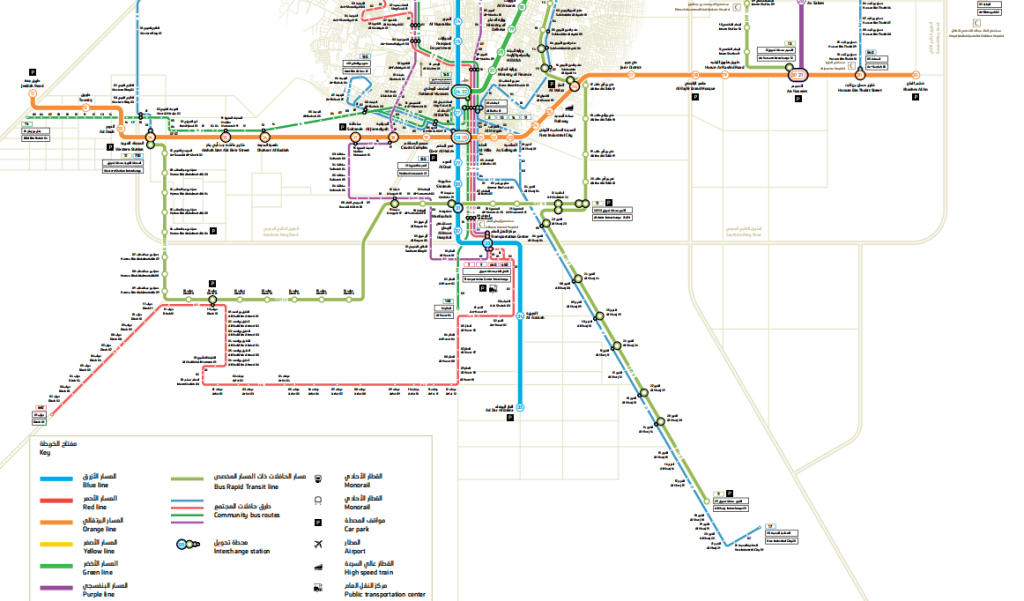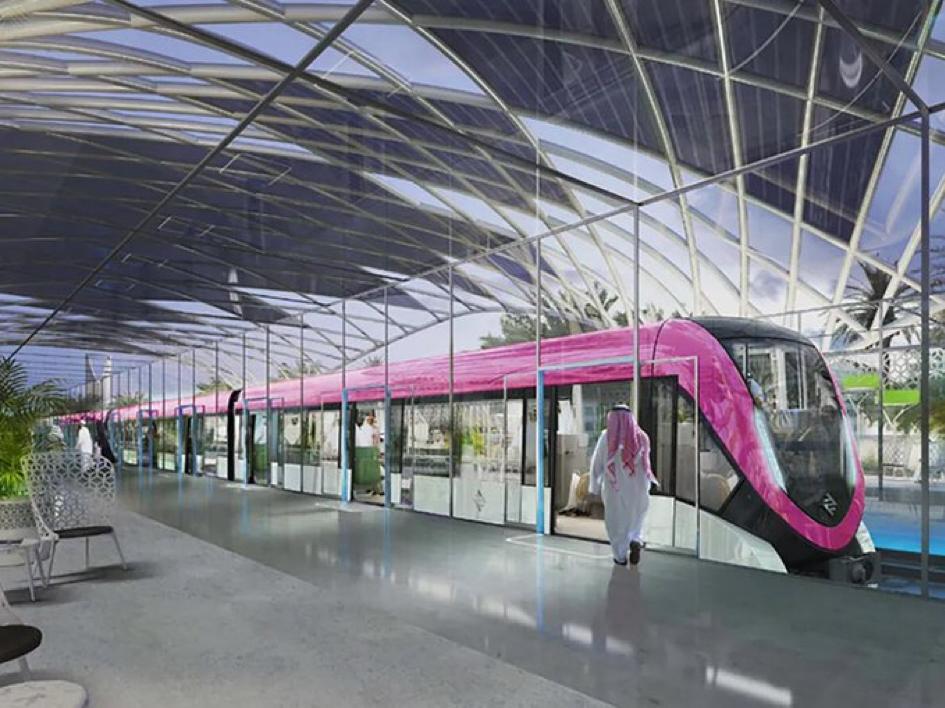Saudi Arabia’s capital is about to revolutionize its public transportation system with the first phase of the Riyadh Metro, set to launch on November 27, 2024. Once completed, the Riyadh Metro by Siemens will be the world’s longest driverless metro system, a key project in Saudi Arabia’s ambitious Vision 2030.
This metro system is expected to ease traffic congestion, reduce car dependency, and boost the city’s infrastructure, making Riyadh a thriving global hub for commerce and trade.
A Bold Step in Public Transport


The Riyadh Metro’s first phase will launch with three of the six planned lines. These lines will connect key routes across the city. They will run from Al Orouba to Batha, the King Khalid International Airport Road, and the intersection of Abdulrahman Bin Auf Street with Sheikh Hassan Bin Hussein Street.
These routes aim to provide smoother and faster travel for Riyadh’s residents. They will also reduce the city’s reliance on cars, contributing to its goal of enhancing public transportation.
By mid-December, the remaining three lines will be added. These lines will cover major roads such as King Abdullah Road, Al Madina, and King Abdulaziz Road.
Sustainability at the Core of Riyadh Metro
The Riyadh Metro stands out not just for its scale but for its commitment to sustainability. As the world’s longest driverless metro system, the project integrates green technologies designed to minimize environmental impact.
Solar panels installed at stations and depots will generate 20% of the energy required for critical systems, while the energy-efficient trains are equipped with regenerative braking technology.
Once all six lines are operational, the Riyadh Metro will run entirely on renewable energy, emphasizing the Kingdom’s commitment to clean energy solutions.
Overcoming Challenges: Delays and Progress


The Riyadh Metro project was initially approved in 2012 but faced several delays, including logistical challenges and the global COVID-19 pandemic. Despite these setbacks, the project remains on track to meet its ambitious goals.
This will be a major achievement for the Kingdom, signaling a strong commitment to modernizing its cities and infrastructure. Though the initial phase will be limited, the driverless metro system is set to transform how people commute, making daily transportation more efficient and sustainable in one of the world’s fastest-growing cities.
Economic Impact and Vision 2030
The Riyadh Metro is a key part of Saudi Arabia’s Vision 2030. This long-term plan aims to diversify the economy and reduce the Kingdom’s dependency on oil. The metro is more than just a transportation system.
It plays a major role in making Riyadh a global business hub. By reducing congestion and offering an eco-friendly alternative to driving, the Riyadh Metro will boost productivity. It will also attract foreign investments and improve the quality of life for residents.
Additionally, the project is set to create thousands of jobs. It will stimulate sectors such as construction, technology, and green energy. With the Riyadh Metro, the city is not just improving its transportation network; it also sets a global example of integrating sustainability and technological innovation into urban development.
We Also Said: Don’t Miss It…Flying Electric Boats Anyone? Meet the Kingdom’s Newest Mode of Transport



